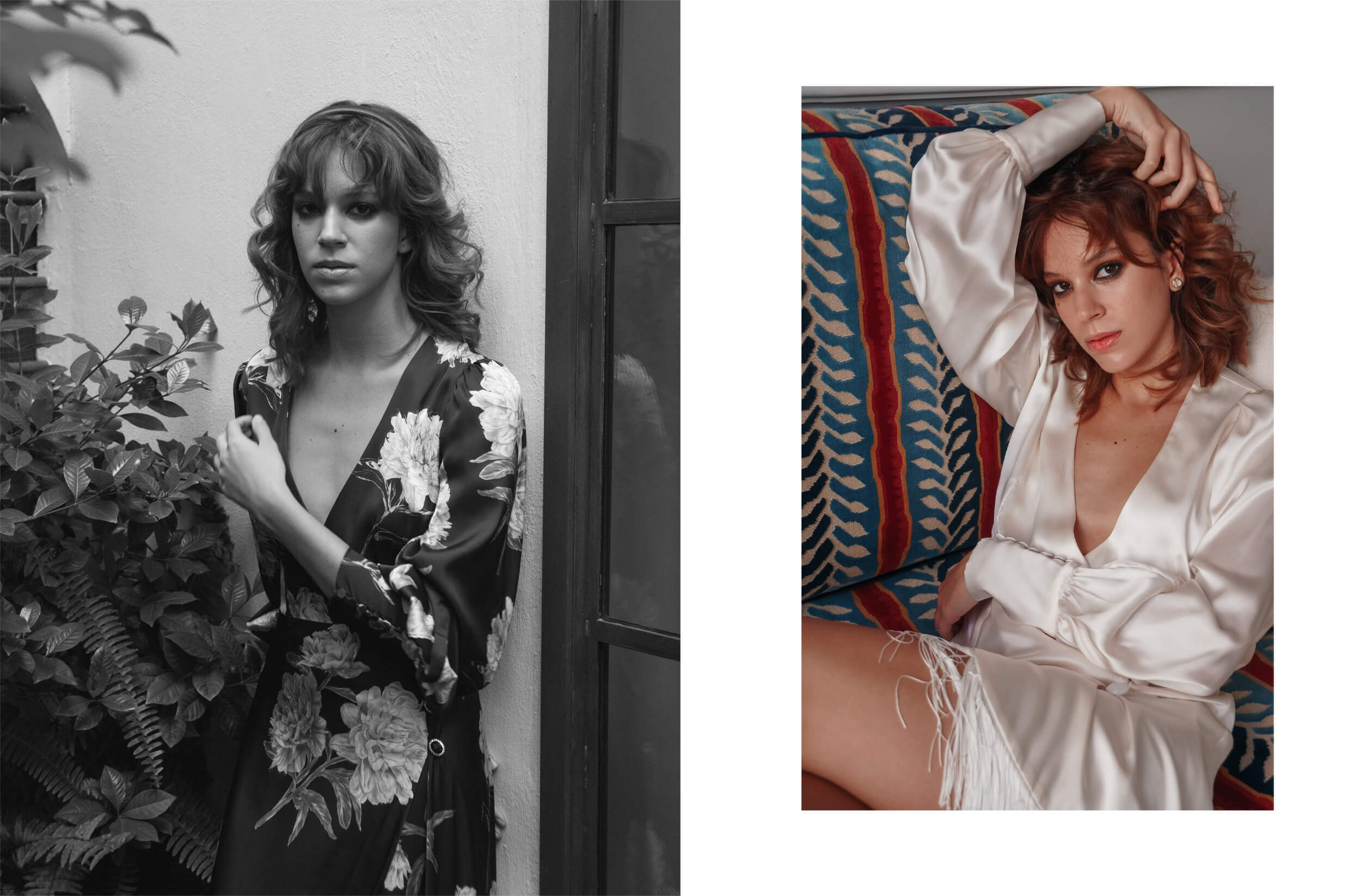It takes little to express oneself.
All you need is passion. And you have to believe it.
For actress Eleonora De Luca, that’s all it takes: acting, dancing, a pen, and love.
With Rome in the background, we played the role of viewers, while Eleonora took us, step by step, word after word, emotion after emotion, in a kind of choreography that embodies everything she has been, she is and she wants to be. From the wonderful experience on the set of “The Macaluso Sisters” and “Padrenostro,” to the challenges faced to play Mary, from the concept of freedom to forgetting her appearance to be herself, what Eleonora showed us is made of disarming expressive beauty.
Just like the stories she dreams to tell, where the infinitesimally small and the immensely large have the same, important value.
In such a time in history where we’re missing cinema more than ever, both as a physical place and a collective experience, what’s your first memory related to that world?
It’s funny, but I remember going to the cinema for the first time when I was 5, we went to see “A Bug’s Life.” So, basically, the first thing I saw on the big screen was the “small” world. Cinema is a place where the infinitesimally small can be seen and lived as much as the immensely big.
In the movie “The Macaluso Sisters” by Emma Dante, which was entered in the main competition at the 77th Venice International Film Festival, you play Maria, the eldest of five sisters. What was your first reaction when you read the script? And what was the first question you asked the director and yourself?
When I read the script for the first time, I understood right away how the sisters Macaluso were making space for themselves through small gestures, unsaid words, and objects from their home. “The Macaluso Sisters” is a fully-fledged story about time. I like to think of time as Ungaretti did, to consider it as a feeling that continuously tangles and unties with the people and things we love throughout our lives. One of the first questions related to the interpretation of the script I asked Emma Dante was about the inner rhythm of Maria, my character, within the time of the movie.
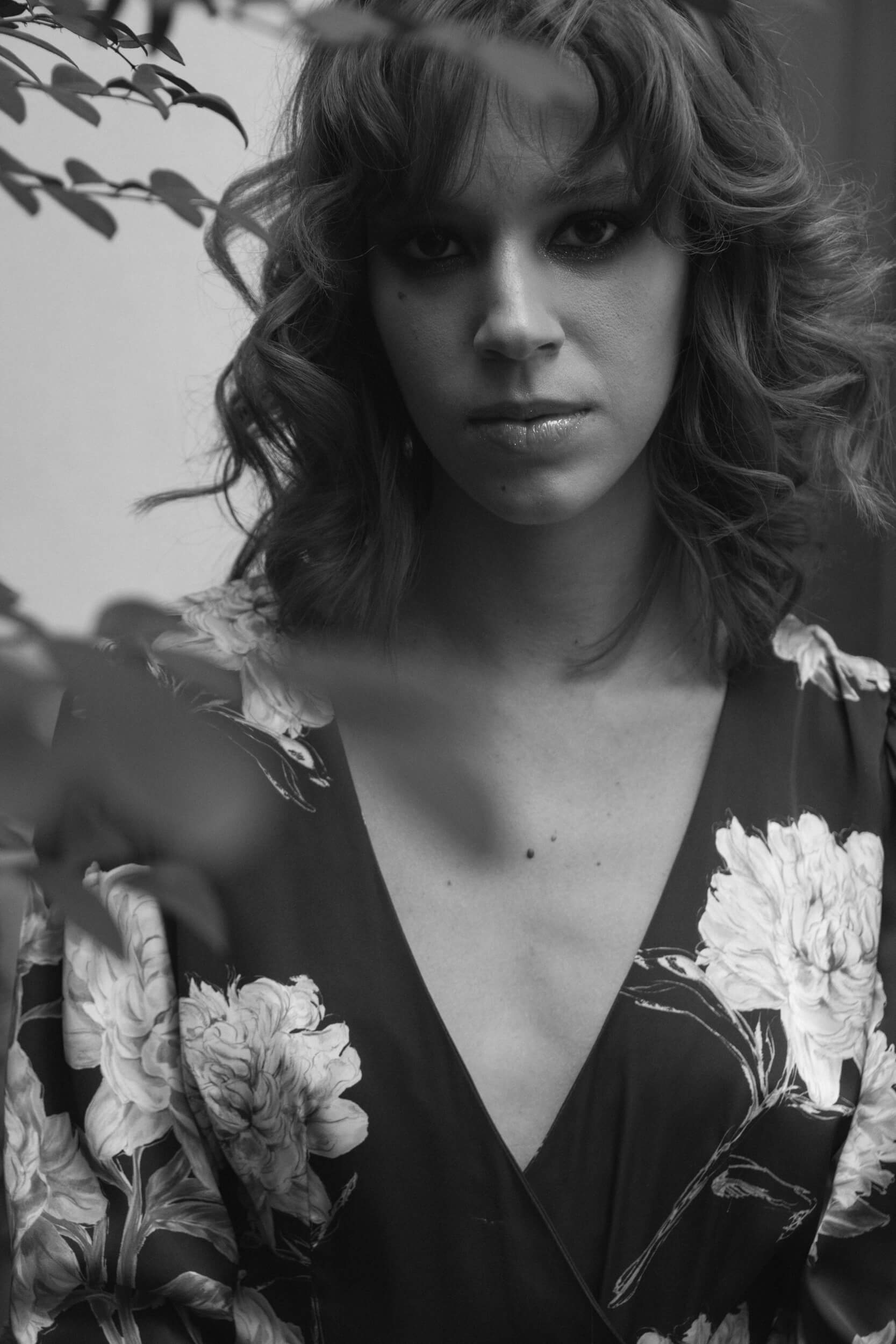
“Cinema is a place where the infinitesimally small can be seen and lived as much as the immensely big.”
“I like to think of time as Ungaretti did, to consider it as a feeling that continuously tangles and unties with the people and things we love throughout our lives.”
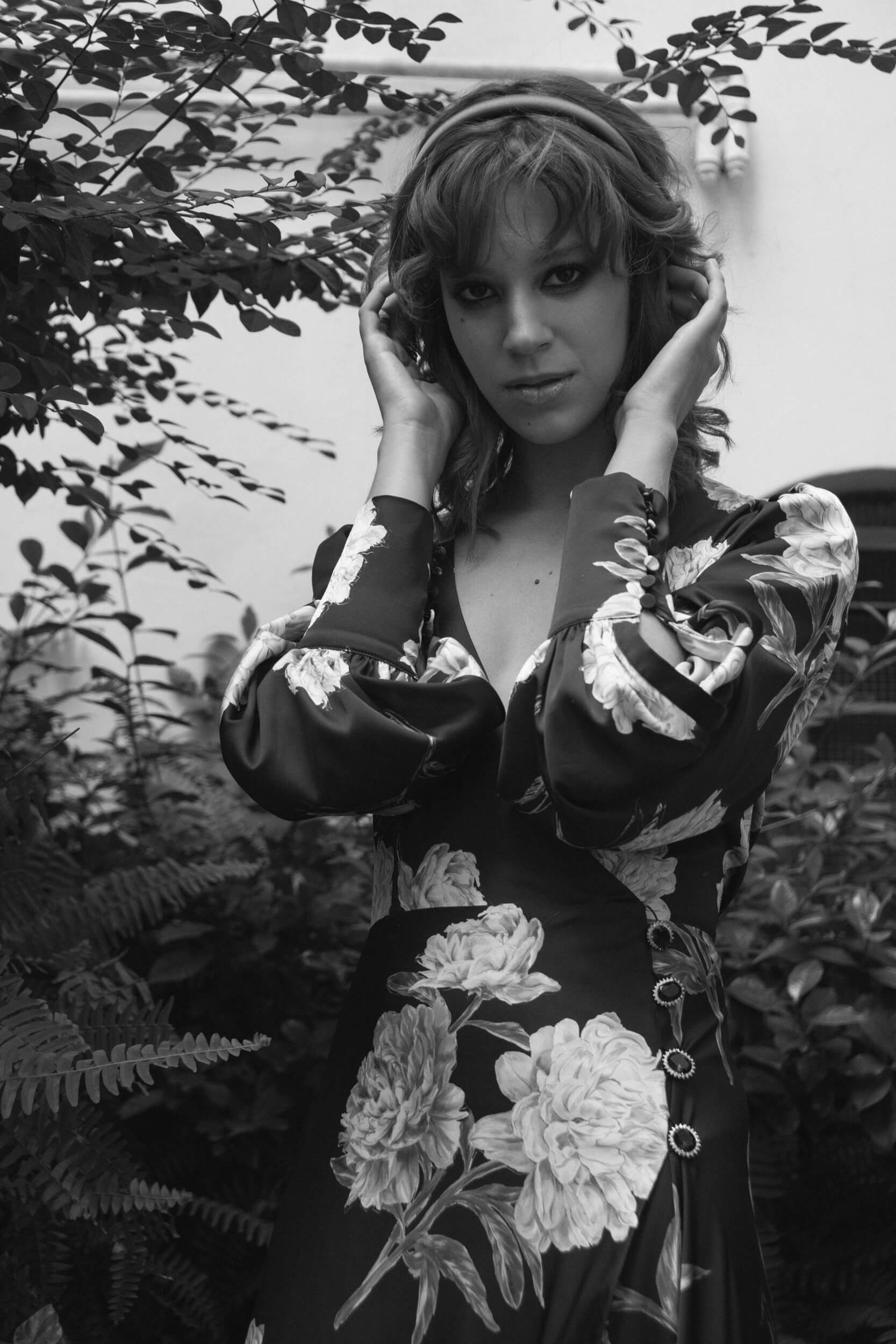
What was your approach to the character you play? Did you know and did you rely on the theater play on which the movie is based in order to understand it, to get to know it, and to act it out? Is there something of you in Maria?
I had already seen and was really touched by the theater play on which the movie is based. Actually, the play remained a fundamental reference point for its movie adaptation, even though the story for the big screen is rather different on so many levels. The play was mainly a huge motion-based influence for me, it was a sort of emotional drive. Maria was an epiphany to me. Getting to play her somehow mystically opened a door on my past, and at the same time, it opened another door on the unknown. All this was amplified by the amazing symbiotic and harmonic work I did with Simona Malato, the actress who plays the adult and broken version of my character. I was the idealization, the dreams in the making, the first flight, while she was the fall, the darkness, the absorption.
There’s a lot of me in Maria, but she’s also very different from me in many other aspects. I can’t explain why, but this was the first time that, when I re-watched myself on the screen, I completely forgot to recognize myself at many points.
What were the difficulties and challenges of playing your character and how did you deal with and overcome them?
The first thing I did in order to empathize with Maria, the elder of five orphaned sisters, was to look for a (never experienced before) sense of sisterhood of blood with a group of women, a recognition of a female tribe. My younger and older colleagues were brilliant in doing exactly the same thing with the same strength, all together.
The biggest challenge for me, though, was to stir up my past as a ballerina which I had put aside a long time before for many reasons. Once unhinged, a door in my heart that had been blocked for a long time without me realizing it was finally opened. This movie was a liberating opportunity for me. If you manage to be free in the past, you’ll be free everywhere.
How would you describe “The Macaluso Sisters” in one word?
Body.
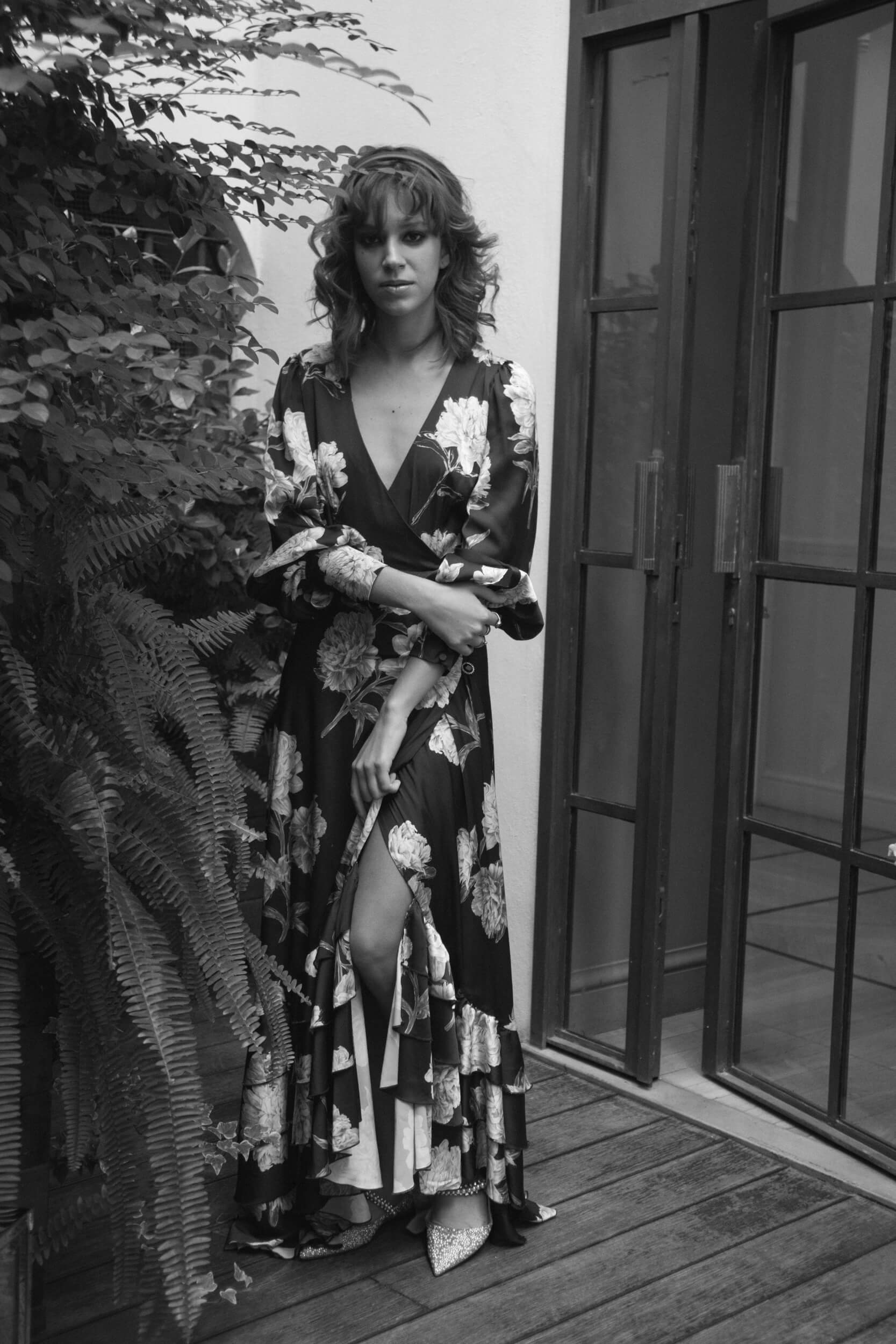
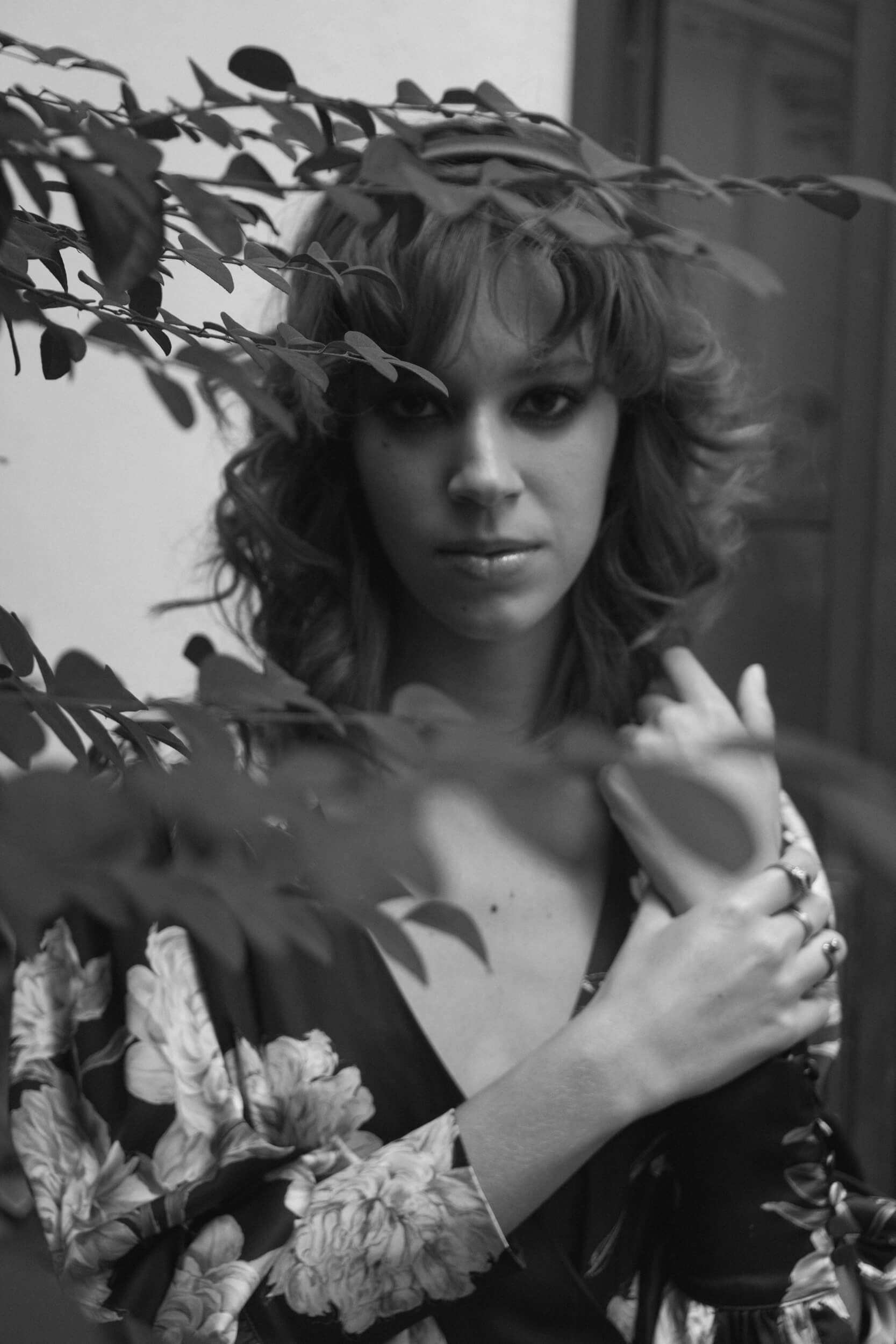
“If you manage to be free in the past, you’ll be free everywhere.”
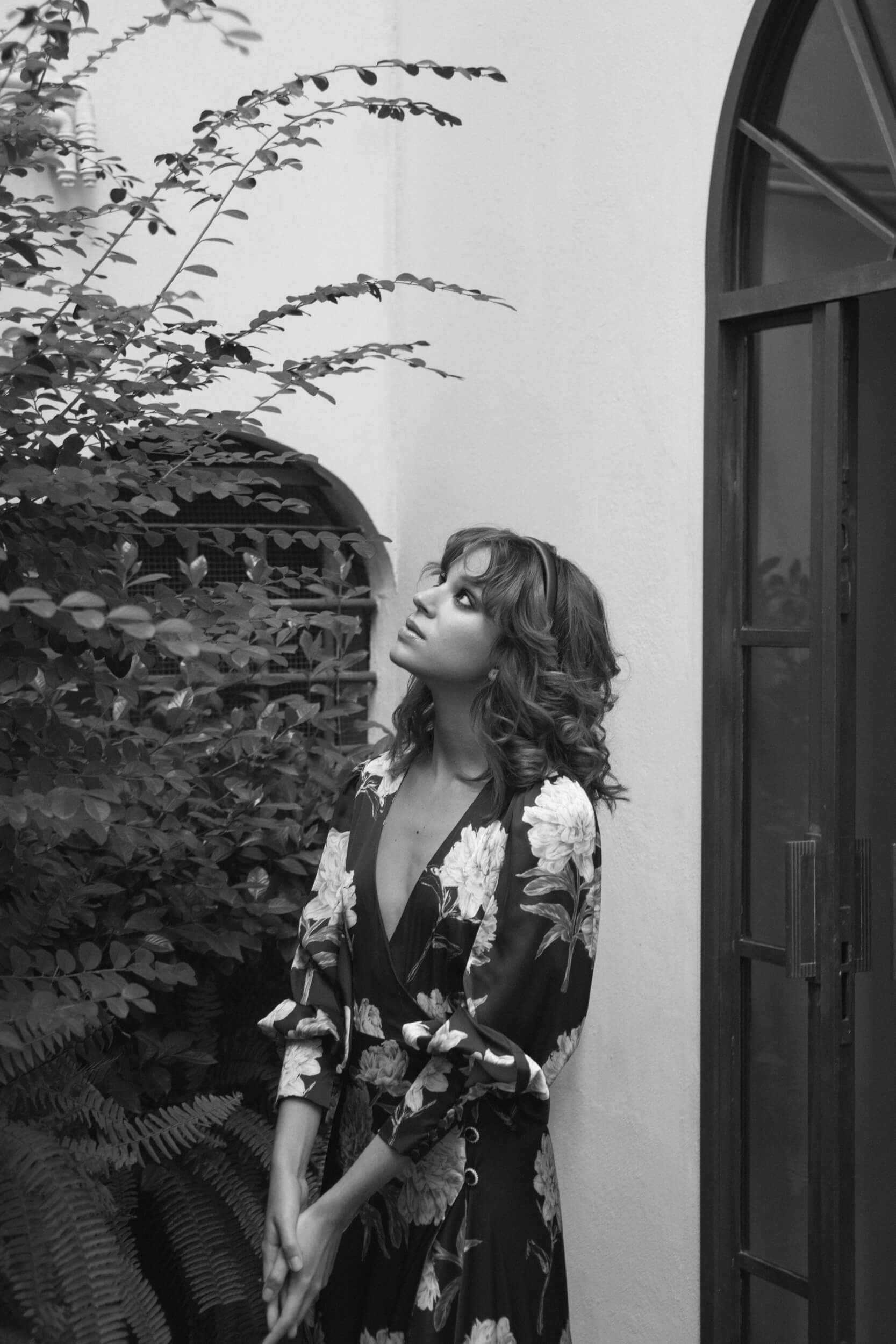
How and where does the chemistry between you and the rest of the cast originate? How did you build the relationship between Maria and the other characters, her sisters specifically?
Emma Dante got us to do a lot of work together. We took some time to experiment, as in a sort of rehearsing lab, in order to understand how the “pack” of sisters moved around, which were the roles of each sister, to mirror ourselves with our adult and elderly alter-egos, to focus on the gestures, rhythms, breaths, to get familiar with the house, the objects, and the space in general. This time spent together got us to synchronize with each other and think like a single organism, a body, like I said, in which every single part cooperates on the total functioning, but has its own complexities and functions.
The relationship between Maria and her sisters spontaneously originated from the improvisations and the script; for example, at a certain moment it was clear to me that her roles within the group were that of the mediator, the watchtower for the younger ones, and the economic organizer, except for the exploits of independency and eroticism she has when she starts dancing and when she falls in love. Several scenes in the movie where we, the sisters, interact with each other were simply a result of improvisation.
You acted in the drama “Padrenostro” by Claudio Noce, alongside Pierfrancesco Favino and Barbara Ronchi. How was it to share the set with big names like theirs? Was there any new lesson or secret you took home with you once you wrapped up?
I’ve always been very lucky both on movie sets and in the theater. Most of the time, I worked with artists whose professionalism and talent I deeply admire. The set of “Padrenostro” by Claudio Noce just confirmed this luck of mine. Barbara is an actor with a deep scenic sensibility, and Pierfrancesco Favino has the ability to turn himself into a whole other person making it look like the easiest thing in the world. Generally speaking, I had a lot of time to look around and absorb what could have been useful for me from everyone, from the first to the last member of the cast and from every single sector. This is my favorite thing to do when I join a great production.
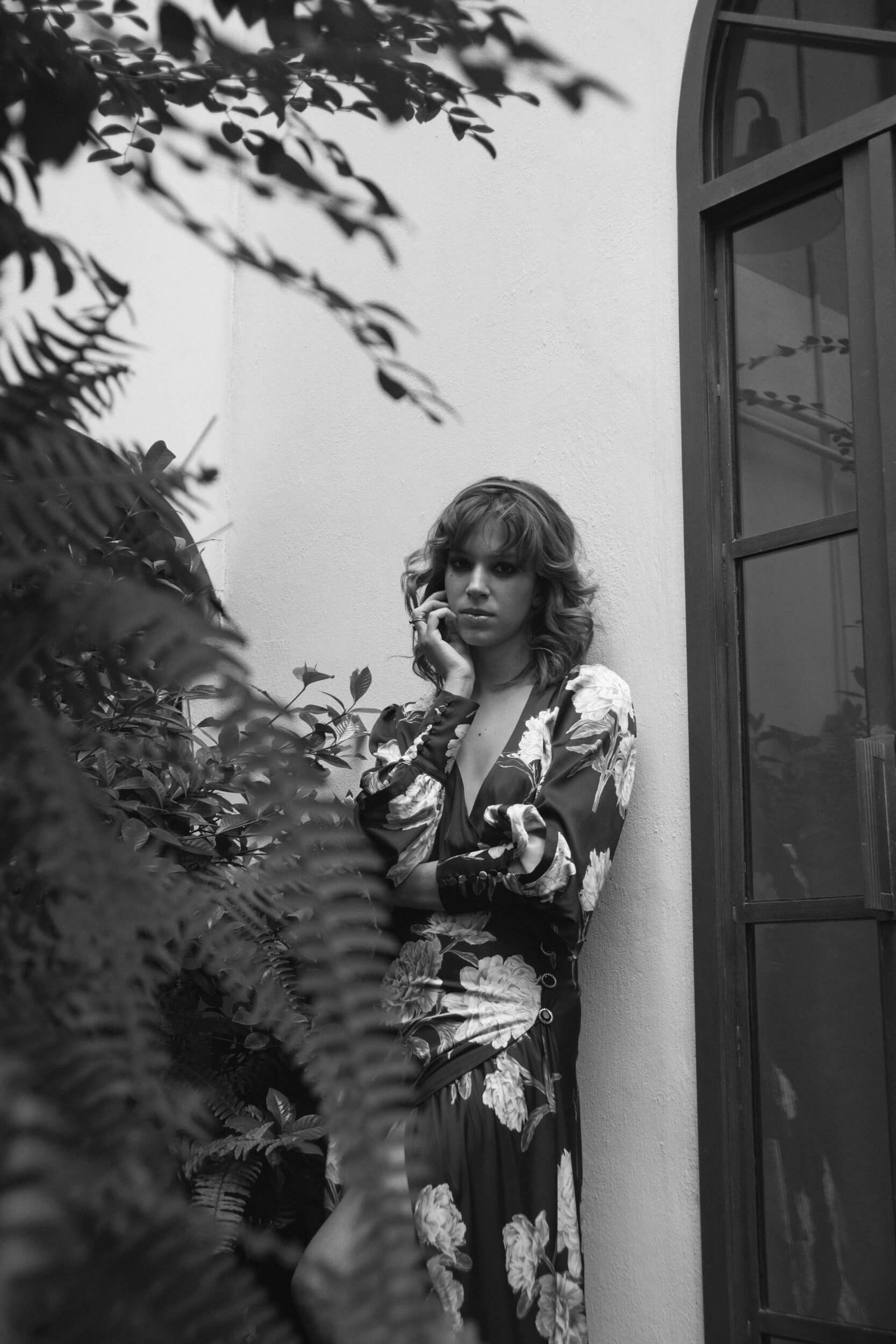
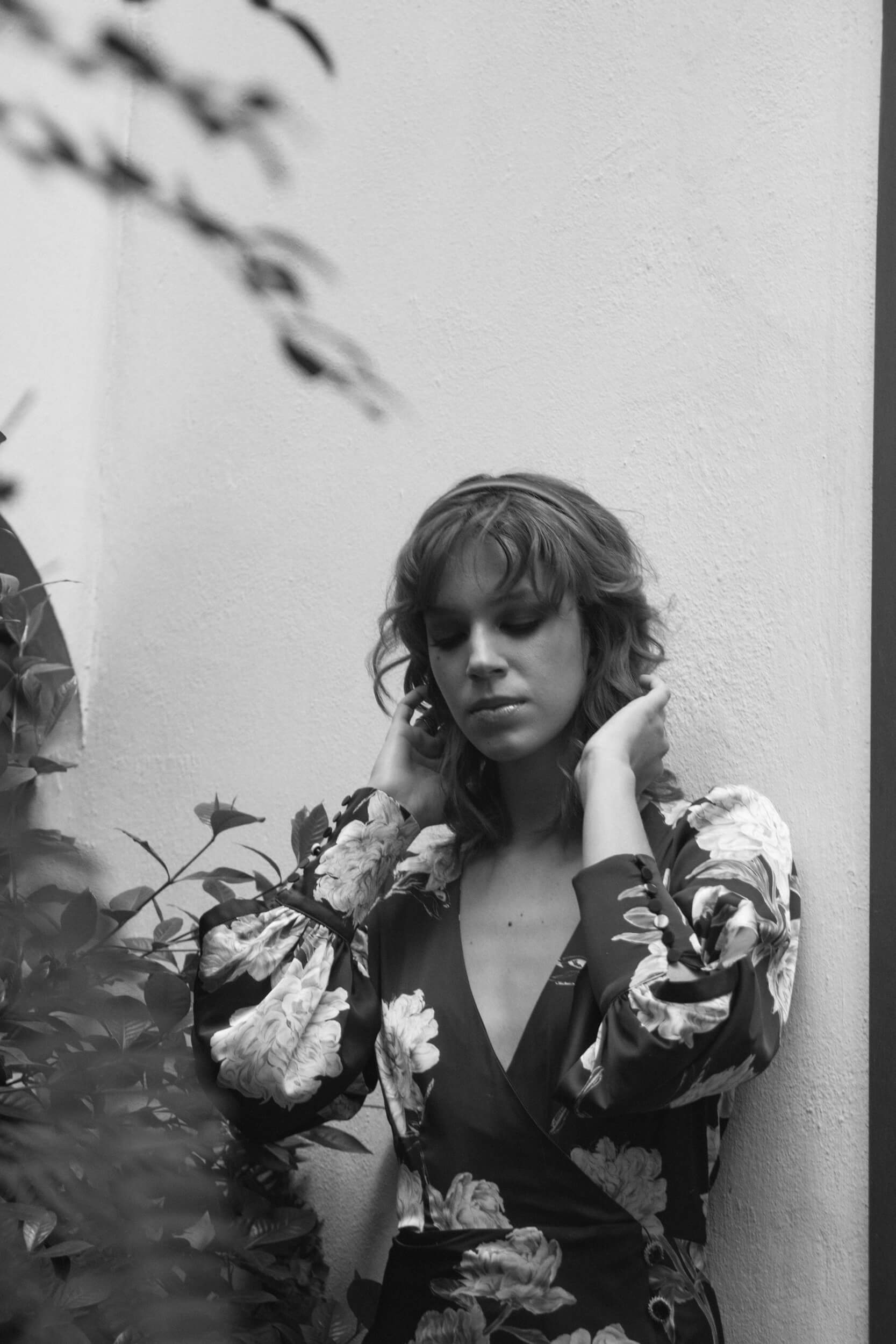
You’re not only a film, television, and theater actor, but also a dancer: how does your approach to these different kinds of challenges change?
To be honest, I’ve trained as a semi-professional ballet dancer for several years, but then I suddenly quit. My teachers wanted to train me for the La Scala Theater Ballet. I began to transform that impulse as I started studying theater when I was 16. I don’t really work as a ballerina, but I often dance in theater plays when the show requires it. At the Greek Theater in Siracusa, for example, it’s almost impossible for production not to include some great choreographies. This recently happened in a movie for the first time, with Elena Dante’s film. I choreographed Maria’s dance during the auditions. It felt like putting back around my neck a necklace I hadn’t worn in a while. Dancing, to me, is a moment of absolute freedom of expression.
What’s the latest TV show you’ve binged-watched?
“The Handmaid’s Tale.” I saw all three seasons in six days, and I’m waiting for season four. I’m one of the biggest binge-watchers around, I think. I watch a lot of TV shows and I binge-watch them. I’m passionate about the Asian ones, and the dystopic and uchronic ones. I’ve just finished the first season of “The Man in the High Castle,” based on the novel of the same name by Philip K. Dick, who’s one of my favorite authors. My all-time favorite, instead, is “Sherlock.”
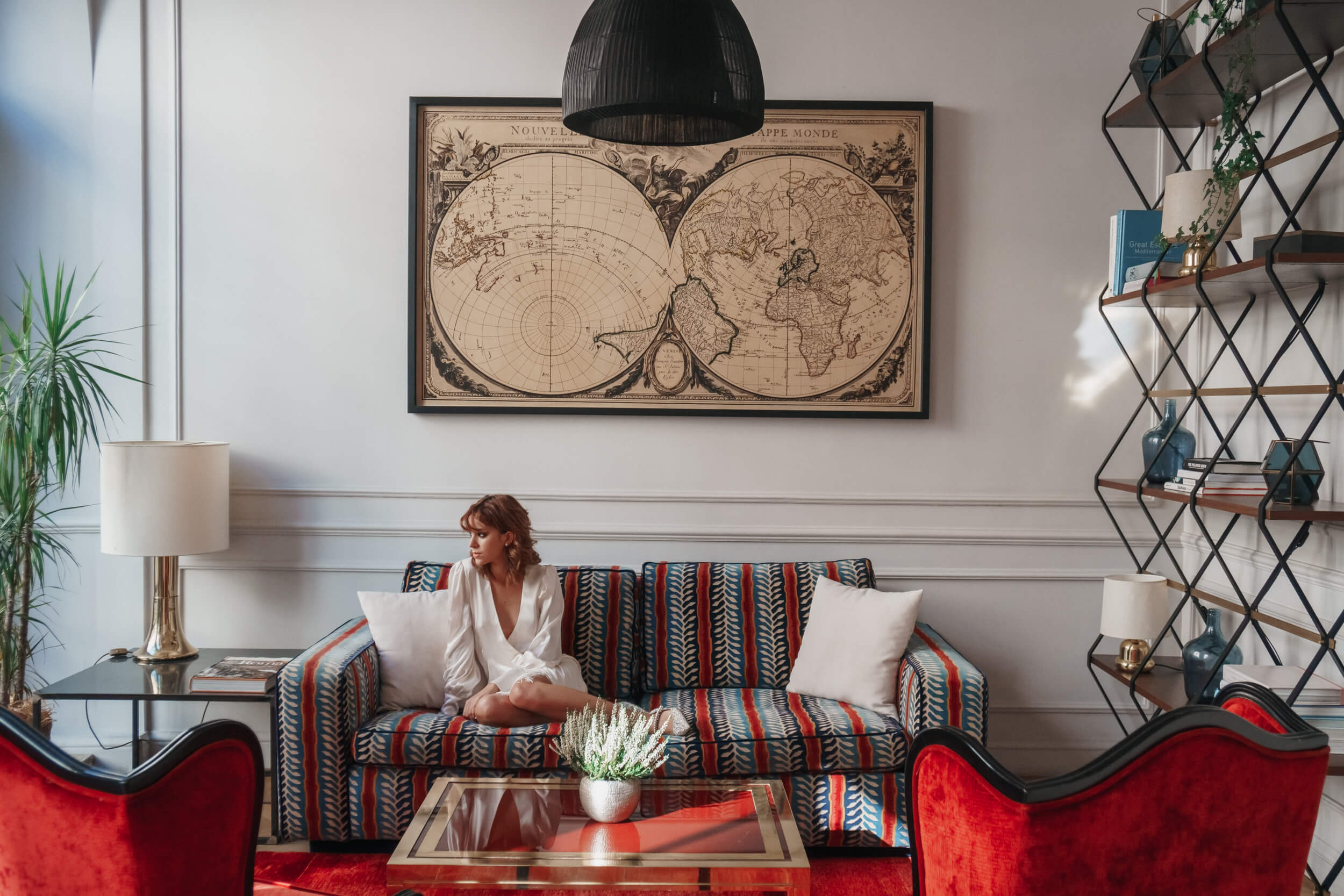
“Dancing, to me, is a moment of absolute freedom of expression.”
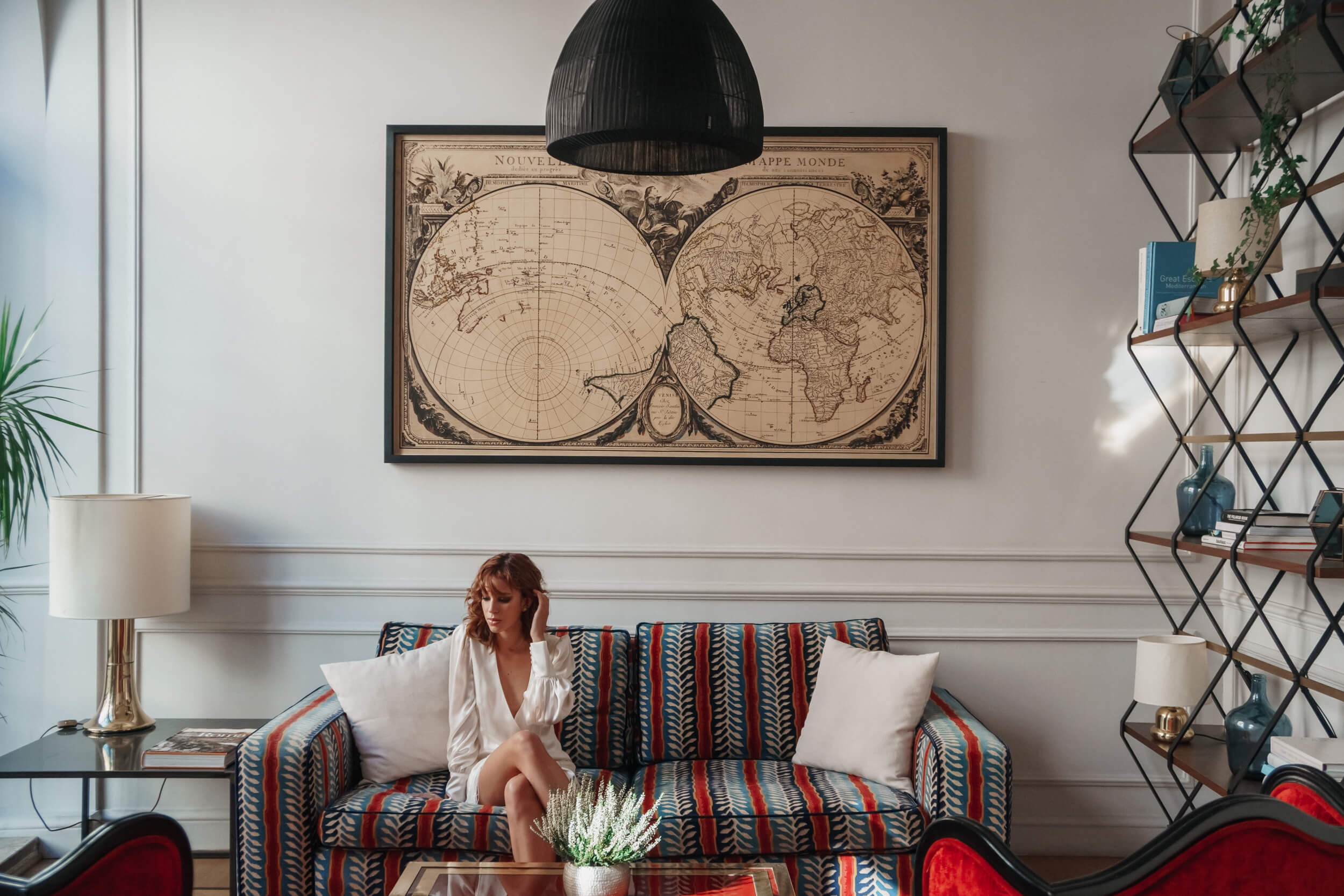
What stories do you dream to tell?
I dream of telling beautiful stories. Stories that can reach everyone’s heart, that are not written for the usual bourgeois sitting rooms only, genuine stories, full of creativity, with no finger-pointing, or that don’t necessarily show the dark side of the human soul just to seam real, stories that change you, enlightening you, without hammering your heart only for the sake of tearing you apart.
The latest movie or TV series that made you discover something new about yourself?
I’m always discovering new things, but one of the nicest and weirdest things I recently found out is that, whenever I cook, there’s always a mysterious force somehow guiding me. I get into a state of deep meditation. It makes me feel good and it feels extremely natural to me to mix the ingredients without ever tasting them as if it were a sort of magic or alchemic ritual whose formula I inexplicably know.
What does “feeling comfortable in your skin” mean to you?
To me, it means not to forget what I look like and the third-person feeling I have of myself, in whatever situation I happen to be in.
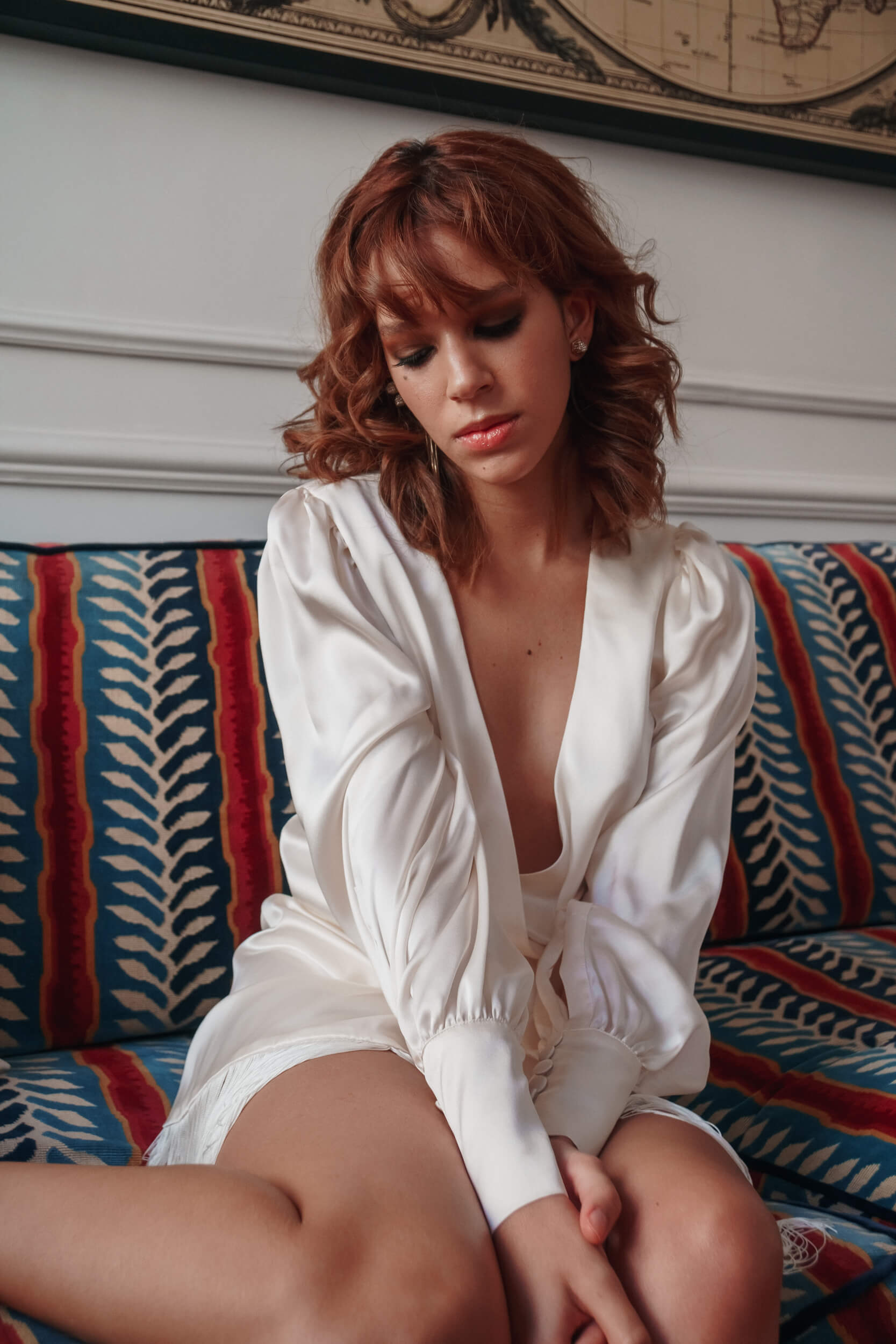
“I dream of telling beautiful stories (…) that change you, enlightening you, without hammering your heart only for the sake of tearing you apart.”
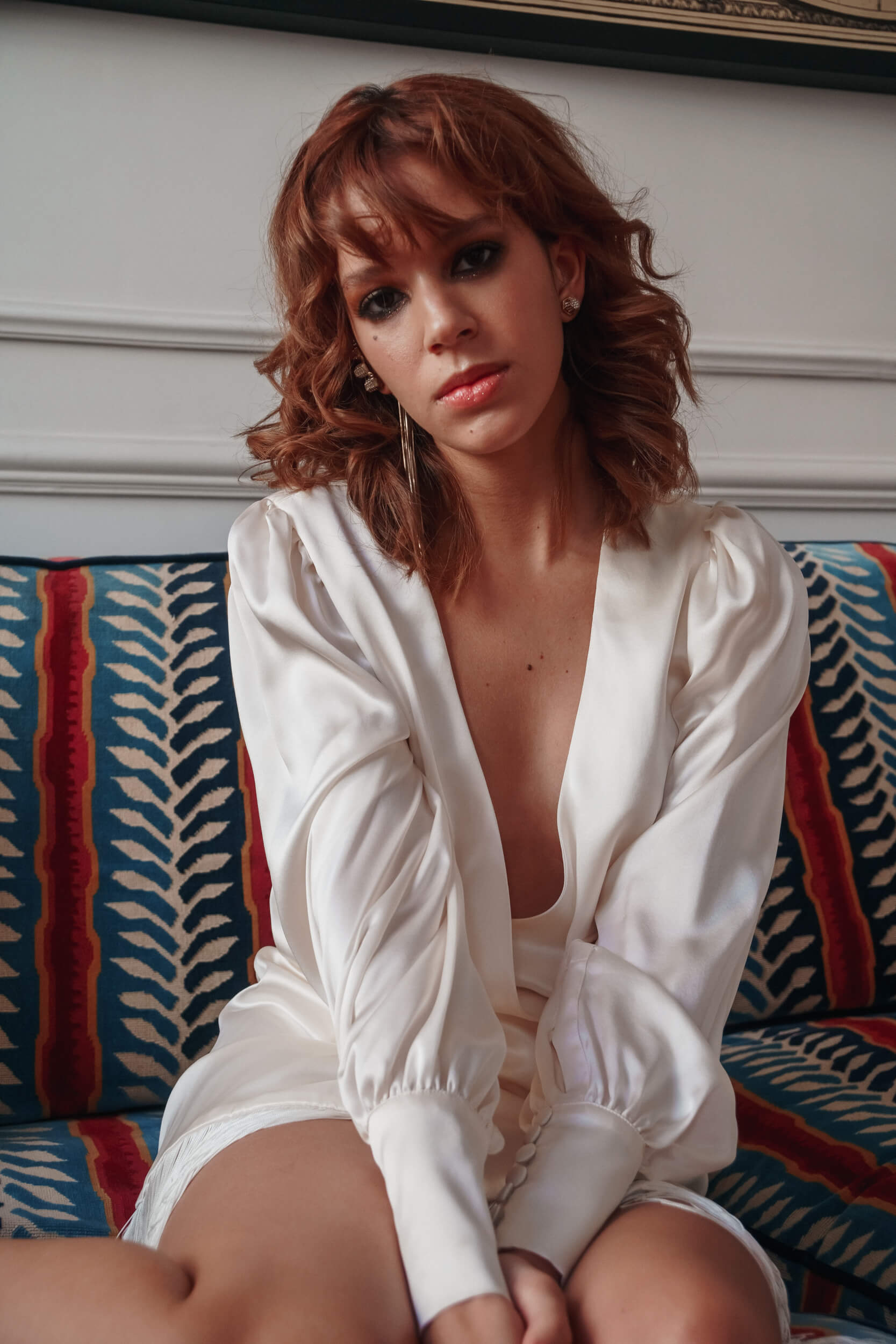
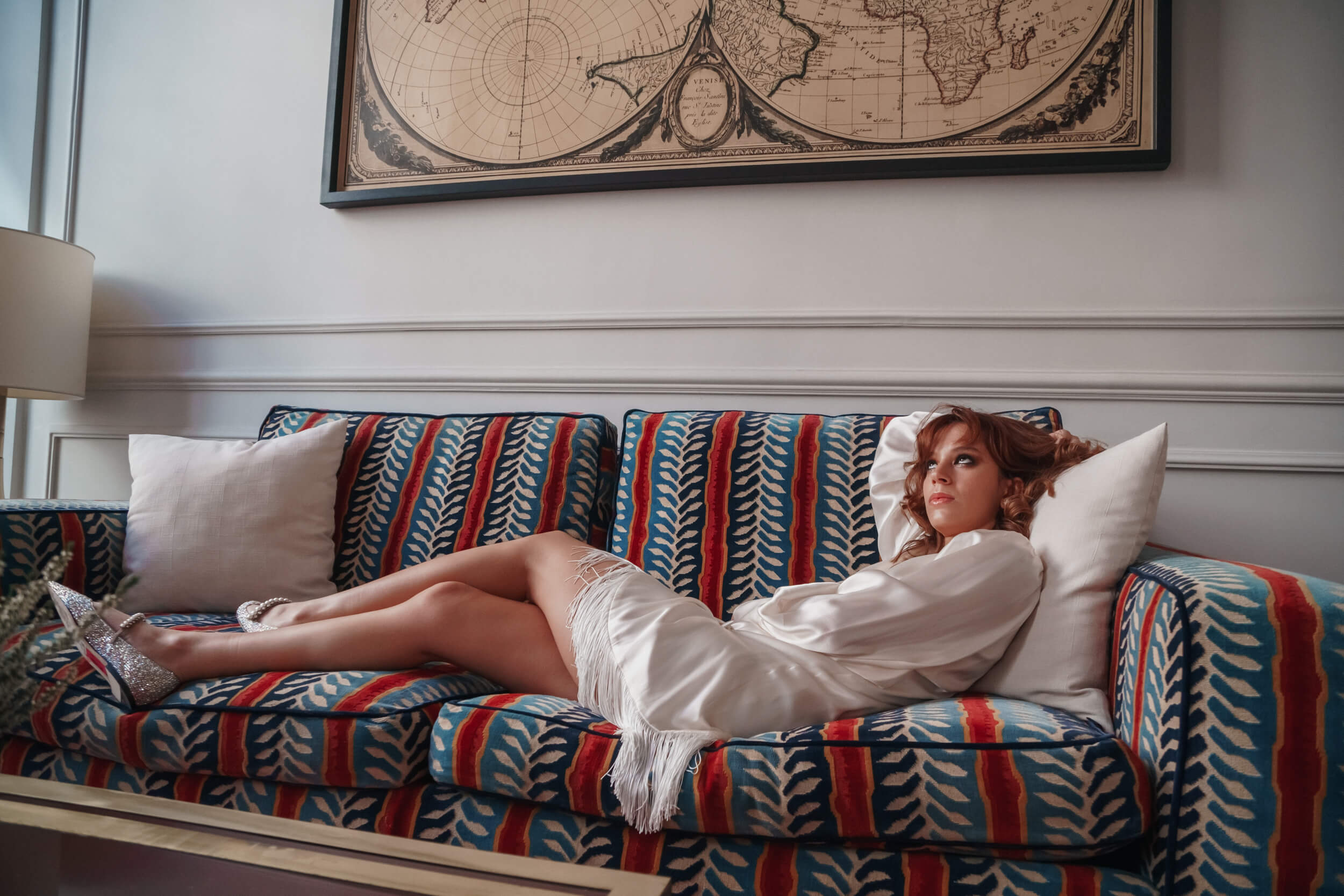
What’s your must-have on set?
A pen. You always need a pen. You always need to re-write scenes. I don’t like pencils because they’re reversible, I like to take the risk of writing down bad notes.
An epic fail on set?
I once managed to start the engine of a two-cylinder scooter and get on it (complete with a passenger) without deactivating the steering lock. You can imagine what happened next.
A movie character you would want to be friends with?
Jack Sparrow. I’ve always been fascinated by a pirates’ life. I’d hide all my stocks of rum in that case.
What’s the first DVD you bought?
“Matrix.” I think it was my mom who gave it to me. My first dystopian movie! I loved it. I’ve seen it tons of times. I started asking myself a lot of philosophical questions about life, and from that moment on a chasm of queries opened up.
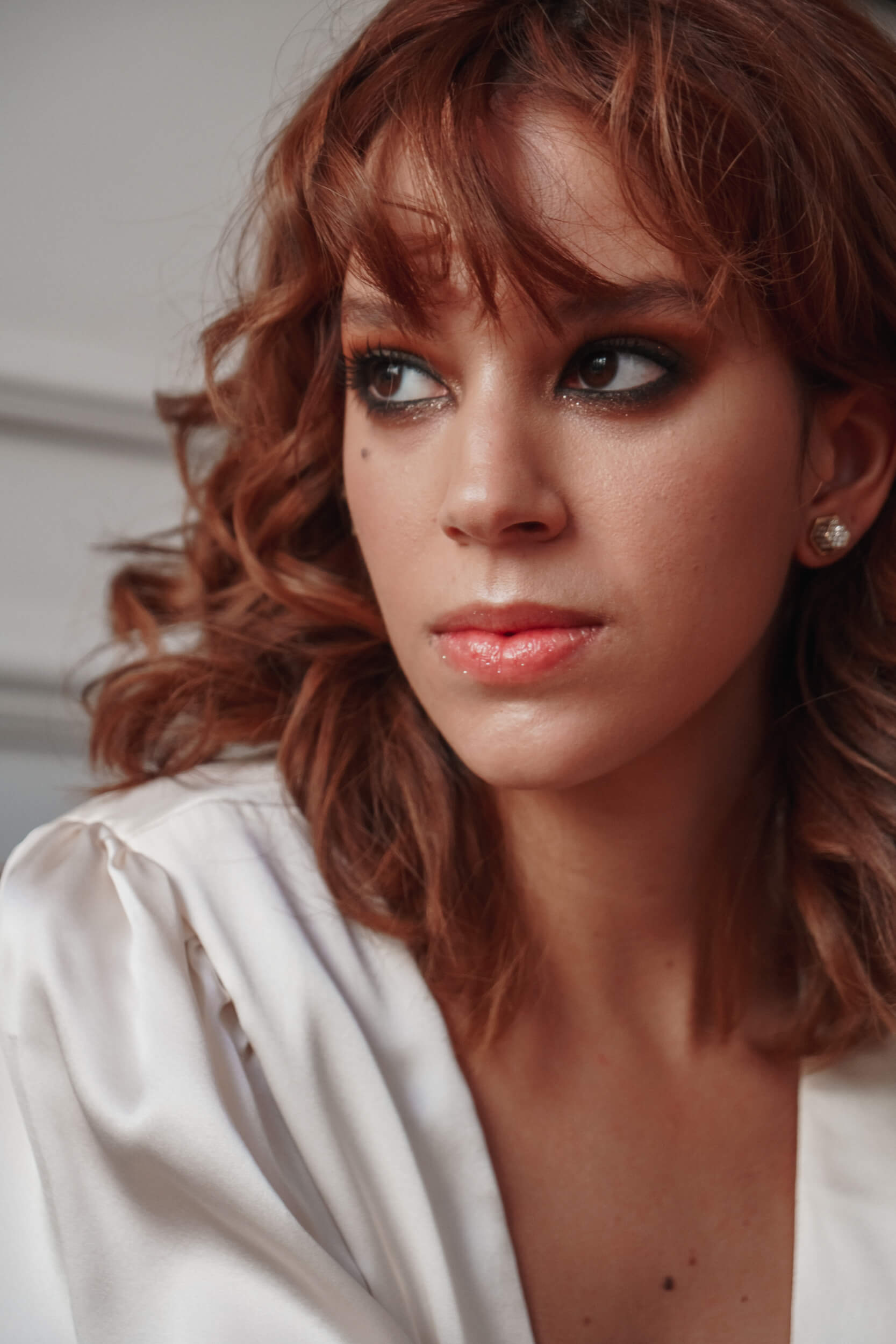
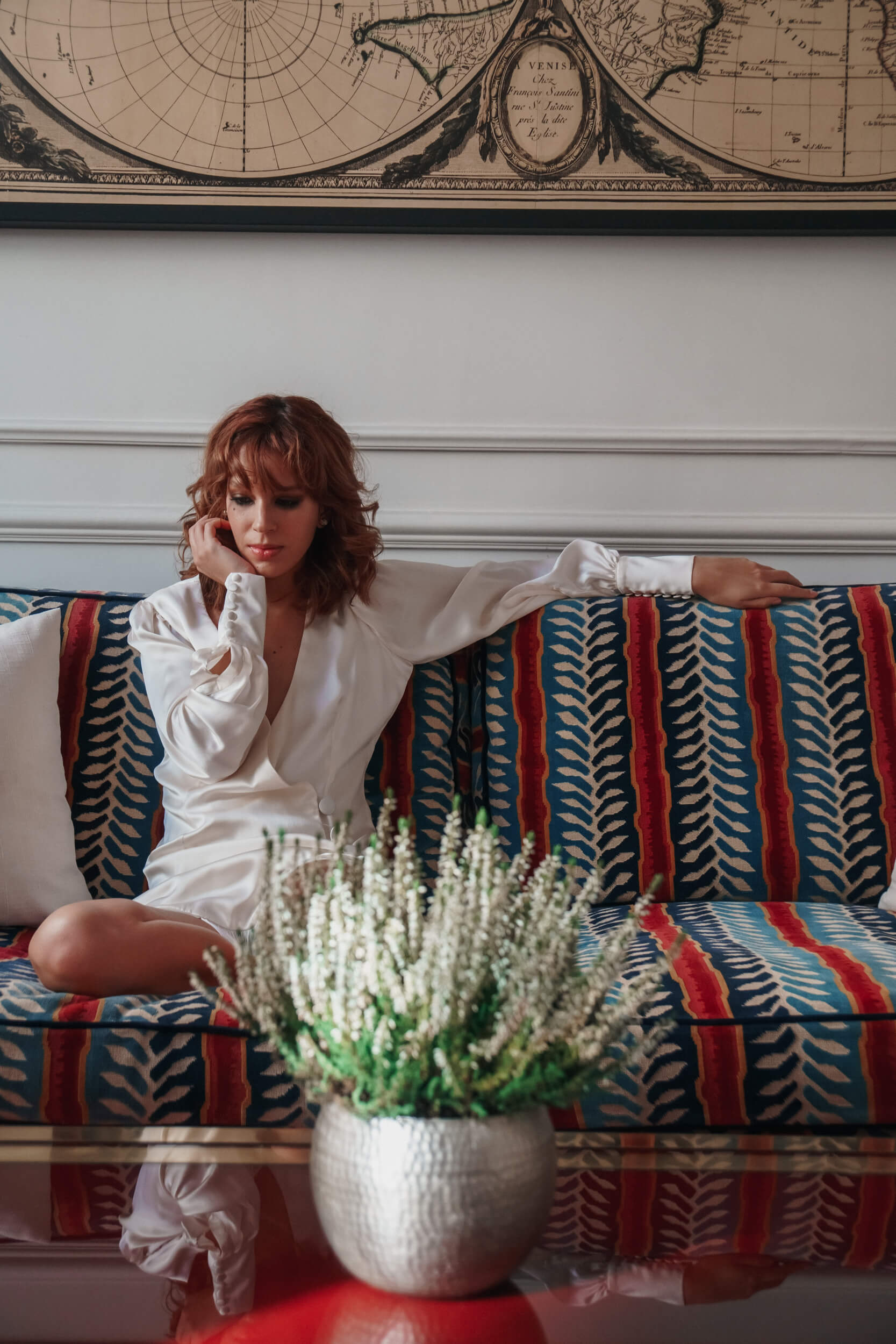
“You always need a pen.
You always need to re-write scenes.”
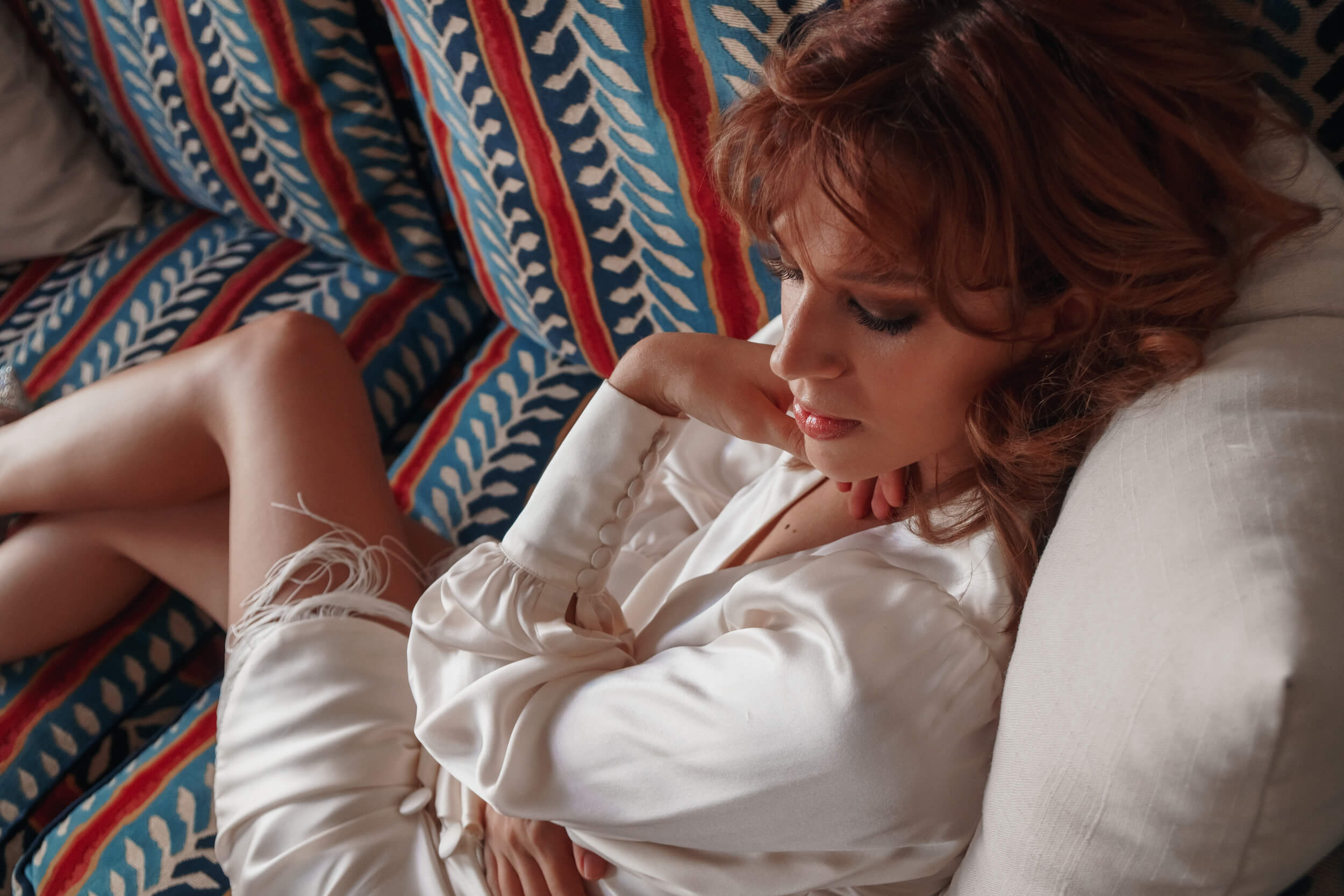
What’s the bravest thing you’ve ever done?
I feel like my bravery is always too small and ephemeral compared to that of the people I admire. I can love in a brave, deep, public, and shameless way, I’m not afraid of being fragile, of opening up my whole heart to someone I love.
What’s your happy place?
The happy place where I was born is an island. I come from Sicily, and that land is always in my thoughts. With the passing of time, I understood that my happy place travels together with whoever has earned my affection.
What can you unveil to us about your future projects?
You’ll see me in the upcoming new season of “Il Cacciatore.” In a romantic role. It was nice because Davide Marengo and Fabio Palladini have an elegant way of directing, essential and concrete, but above all, it was so much fun because I finally got to speak not with a generic Sicilian accent, but in the purest form of Palermitan dialect. As for the other upcoming projects, there’s nothing I can tell you. There’s always this big, mysterious silence that must be kept in our work. I find it kind of funny, it’s like one of those silly board game rules.
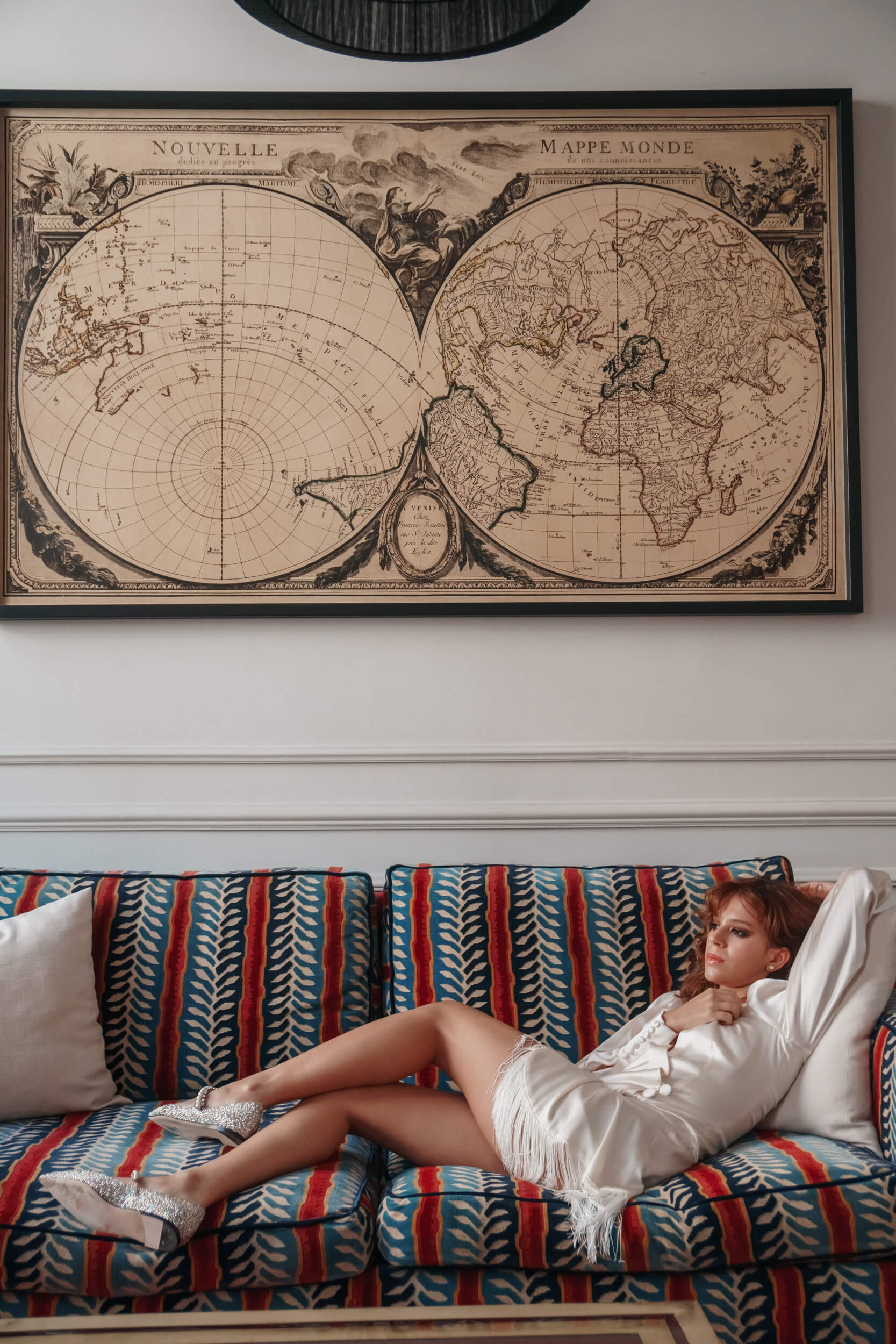
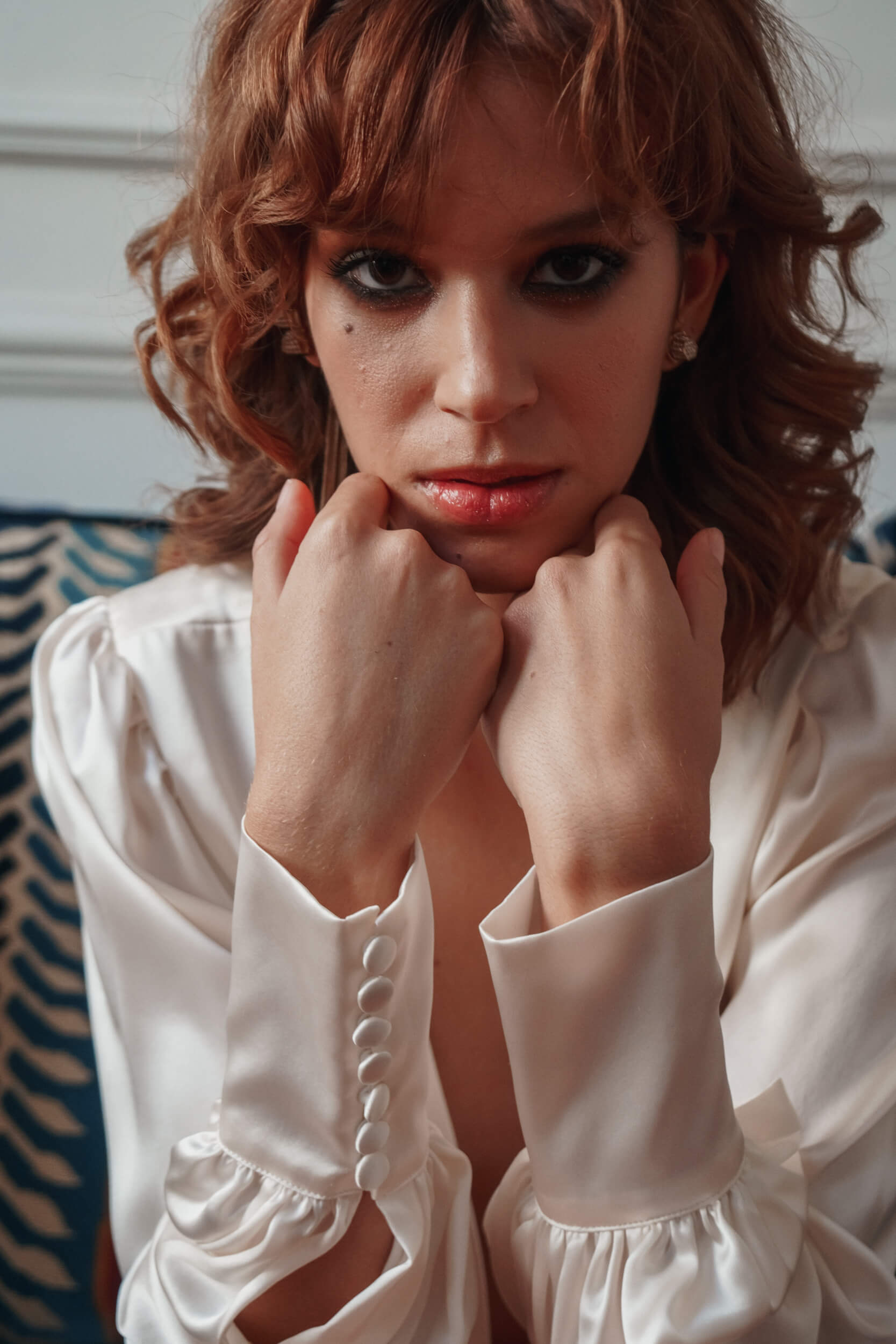
“My happy place travels together with whoever has earned my affection.”
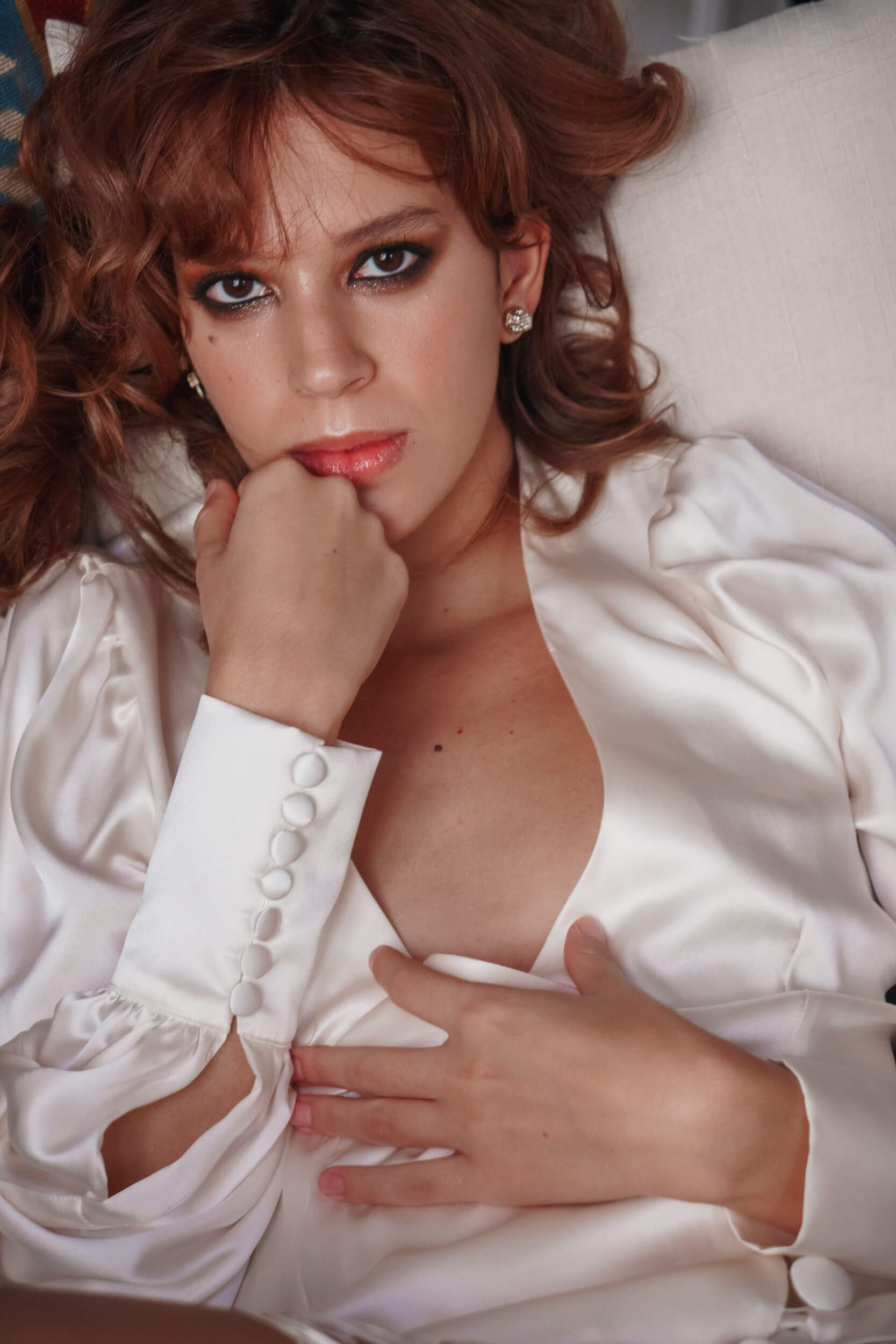
Photos by Johnny Carrano.
Thanks to The Fifteen Keys Hotel.
Thanks to Other Srl.
Makeup by Chantal Ciaffardini.
Styling by Sara Castelli Gattinara.
LOOK 1
Dress: Amotea
Headband: UNDICIVENTI
Shoes: Jimmy Choo
Jewels: Flaminia Barosini
LOOK 2
Abito: Amotea
Scarpe: Jimmy Choo
Gioielli:Giuliana Mancinelli Bonafaccia

